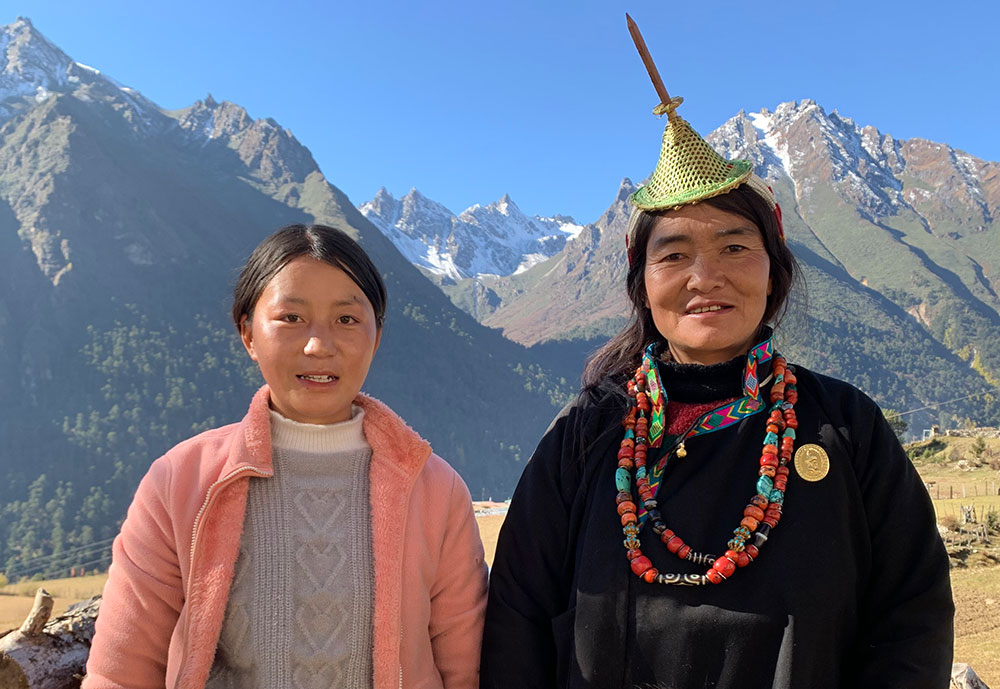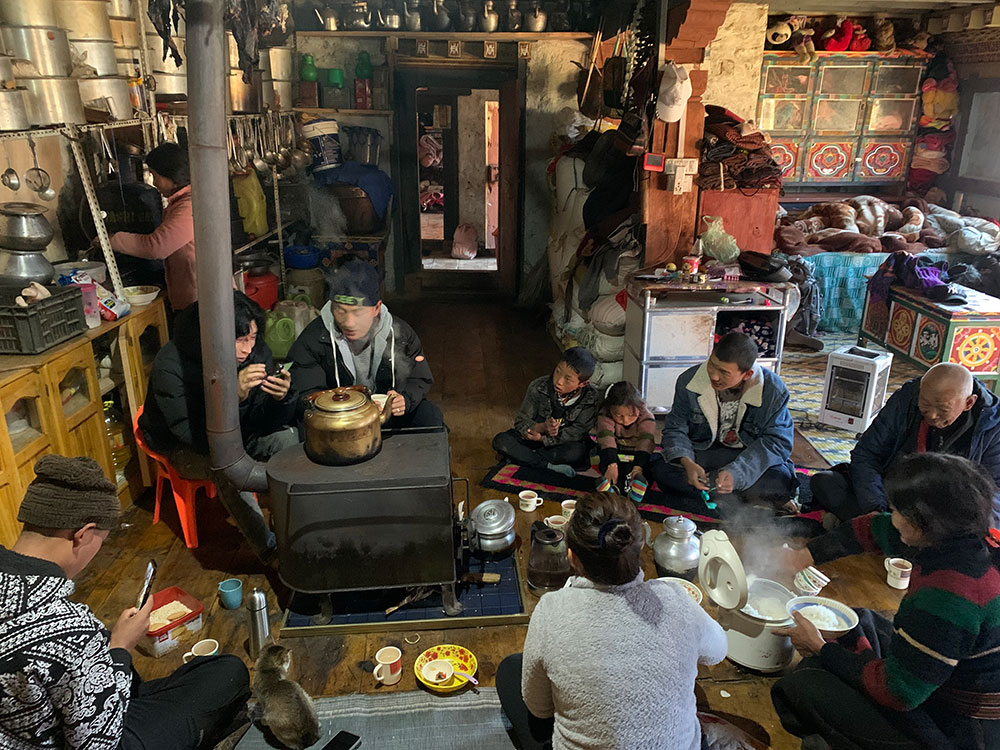Yangyel Lhaden
Embarking on a journey to Laya, I heeded valuable advice from seasoned travellers: First, the frigid water could literally freeze your face, so washing up was discouraged, with makeup remover recommended. Second, extra socks were a necessity due to the potential dirtiness of Layap’s houses. Lastly, cup noodles were advised to counter less-than-tasty local food.
Did I adhere to all these recommendations? Of course, I did!
Laya unfolded its charms as I hiked for five hours from the road-end point, Tongchudrak. A call from Pego, our homestay host, directed us to contact her upon village arrival, and she graciously offered to pick up my colleague and me.
Our homestay was located in the first village of Laya, Tongra. Pego, a petite woman, warmly greeted us upon reaching Laya, inquiring about our journey and hinting at a bit more hiking before reaching her traditional Bhutanese house. The two structures connected by a ladder entrance added to the charm of Pego’s abode.

Pego and her mother-in-law
Originally from Lungo, a two-hour journey from Tongra, Pego relocated to Tongra after marriage. The household includes Pego, her mother-in-law, husband, and their three-year-old daughter. On this occasion, her brother-in-law, a monk, and his friend had joined to witness the Royal Highland Festival.
Pego’s hospitality shone as she offered tea and suja upon our arrival. “Would you like tea or suja?” Opting for suja, my cup was filled to the brim with steaming warmth, despite my attempt to limit the pour.
Pego’s thoughtful preparations continued with a heated bucket of water for our refreshment, coupled with a delectable meal of red rice and cabbage curry. “I hope you like the dish as there are no fresh vegetables at the shops.” Understanding the scarcity of fresh vegetables, Pego accompanied the dish with ezay, encouraging us to eat to our fullest.
Post-lunch, a visit to the adjacent toilet revealed Pego’s meticulous arrangements—a generously heated bucket of water and a washing machine. A welcome respite for my sore feet and an opportunity to wash my clothes.
Our spacious room, adorned with new blankets, held the warmth of Pego’s hospitality. “These blankets are new and clean,” Pego said. “The best blanket is this sheep blanket; cover yourself from the top, and no wind will come in.” The sheep blanket, heavy, thick, and warm, provided a snug cover against the elements.
Throughout our four-day stay, Pego ensured a daily ritual of hot water in the morning, and shared meals with her family, featuring yak meat, suja, potatoes, and broccoli, always complemented by ezay.
During the festival’s movie screening, Pego, accompanied by her mother-in-law and daughter, hurriedly secured seats, leaving us with a considerate offer: “Eggs are on the table; fry and eat if you don’t fancy the curry. I have to go.”
Despite initial worries about hosting without any homestay training, Pego expressed confidence.
“It is no extra work; it is just like hosting our regular guests,” said Pego.
During the Royal Highland Festival, 74 out of 280 households in Laya opened their doors to guests.
As we bid farewell to Pego and her family, expressing gratitude for their warm hospitality, we left behind the cup noodles and snacks, and Pego’s mother-in-law generously provided strings of chugo (dried cheese) for our journey back.


